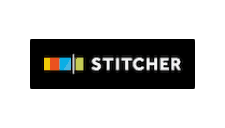Exploring & Understanding Different Coaching Models
Bonus: Watch the video of this episode on YouTube!
Show Notes
Keri Lee, Tim, Diana, Ben and Maggie share the ins and outs of the coaching models they have experienced and we have a meaty conversation about their strengths and weaknesses. Every school is unique and this conversations demonstrates how much of an impact school culture, readiness and history can have on exactly how coaching works.
Coaching Models:
Diana, Kerri-Lee, Tim: Needs based coaching, respond to needs of teachers, staff, students;
Ben: Team-level coaching, purposefully divorced name from technology – focus on innovation;
Maggie: Cognitive Coaching, Peer-Led.
Needs Based:
Advantage: can be tailored to needs, in a small team (of one) you have to find your people within the teaching staff;
Challenge: need to adjust adapt, react to lots of things, coaches often working alone.
Similar characteristics of all models
Invitational;
Not there as punishment;
Models are shaped by the needs and structures of the school;
Roles have to change and evolve as personnel in the school change – especially in smaller schools;
School culture and readiness has a lot to play in the type of coaching you can do – depends on the community experience with coaching;
Needs an open trusting culture so that coaches can be effective in their jobs;
You have priorities whether you name them or not. If you want to grow, you better name them, and prioritize them – The Culture Code;
Every time you get up in front of staff, you’re building the story of coaching culture;
Essential to work closely with admin, needs to have a consistent message coming across, and it will be difficult to make progress.
NIST Innovation Coaches
Purposefully divorced name from technology – focus on innovation
Baseline expectation that in order to be a teacher at the school, you have to have some tech skills
Coaches work with team leaders, tech support comes from team leaders
Shift focus away from consultant (tech support) and more towards problems of practice (curriculum focus)
Tech department does technical skills training
Define the difference between consultant and coaching – when we’re in the mode, we name it.
Invitational – different levels of support – based on needs
Level 1: Working with a team, they help them generate some problem statements & then coaches look at what are things contributing to the problem, lead them through the conversation, help them determine the intervention, come in and act as data gatherers. Impartial and objective, providing them data. Based on that conversation if there are smaller individual goals, they can work with coaches.
There is Cognitive Coaching within the coaching role. Ben’s role is never offer any advice, just ask questions and paraphrase. If there are points that they’re struggling, may step out of coaching role and offer advice, and then step back in.
How is this communicated to the staff?
Level 2: Work directly with admin, they have a vision they’re trying to achieve. Coaches are helping everyone move in that direction. Admin communicate how coaches can help teachers do that. Started with “this is what we do”, everyone understood this but didn’t understand “how to engage” with coaches & different ways to start working with coach. Admin help them understand which team to work closely with.
Level 3: Work as coaching team: Learning Innovation, Maths, Literacy. Physically sit in the same department, go to planning meetings. Physically separate from tech department.
There is peer coaching going on (teacher to teacher),
Ben considers the coaching role more focused on moving teams / the school forward on a larger scale
ASB Cognitive Coaching
Each teacher sets a goal and it’s the job of the coach to help them reach the goal;
Used the ISTE standards to collect artifacts which were then given to the teacher at the end of the year to reflect;
KIS, Tim’s Coaching History
Started at KIS, on a team, no one had ever been a coach before;
Assigned divisions, but decided to strip that away and work with whomever, whenever was needed, led to the Fishbowl for training (much more of the consultant role);
Currently a department of one, still focused on edtech, but curriculum person is focused on coaching teachers/teams to write curriculum;
Principals (called Directors) are taking on the instructional coach role, this makes it challenging for teachers because they are still evaluators and teachers are reluctant to share areas of concern.
How do you show your value?
If they’re improving reading scores, kids can take a test. This is a culture issue, it’s asking people to develop a growth mindset – so measuring impact is a challenge. At UWC KL developed a Google Form which tracked a bunch of things including hope many interactions she had during the day; tracked what types of questions/conversations she had, as well as just the number of interactions. If that positions goes, with whom are they going to have those interactions with?
Tim: pushback to having coaches because coaches don’t have students, they don’t “put butts in seats”. Used a google form to track data. Tracked divisions he worked with, so was able to show that ele and middle were being under served based on what the HS was getting. How are we going to make this more equitable. This data showed that there needs to be another “tim”, and was able to show that he needs to be physically in the es one day a week
Diana: currently using calendar to track this, still struggling with this idea though – would like to talk about this longer
Ben: tell admin to go talk to teachers, gather feedback from teachers, and give me that feedback
Maggie: data is really important, survey at the end of first and second year of coaching to ask people how the tech coaches have helped them (in planning lessons in reflecting on lessons, providing new tech tools). Collect data on student learning and student artifacts, how has the tech use of the students changed over time. Is there a causal fact / correlation that impacted the way students were using tech.
JOIN OUR MAILING LIST
Sign up for our #coachbetter mailing list to receive a newsletter every other week all about coaching in a school context. Each FREE newsletter features one of our relevant coaching videos, a practical coaching tip you can use right away, plus a great resource created or selected by the Eduro Team to help you #coachbetter!
CLICK HERE
#COACHBETTER ON FACEBOOK
Connect with other coaches, just like you, in our free #coachbetter Facebook group:
CLICK HERE
EVEN MORE COACHING RESOURCES
See all of our Eduro Learning coaching resources!
CLICK HERE
If there’s something you’re interested in, and we don’t have it, let us know!
PRIVATE MENTORING
Or if you want to see what the private mentorship experience is like, check out our Private Coaching sessions – and get your first coaching session for free – here:
CLICK HERE
ABOUT #COACHBETTER
We’re passionate about the impact instructional coaching can have on school culture, student learning and teacher professional growth. This podcast allows us to share inspiring ideas about coaching through conversations with innovative educators from around the world. Let us help you #coachbetter! We would love to hear your thoughts, ideas and questions so please drop us a comment below!
The Coach Certificate & Mentorship Program
An academic year of professional learning designed by coaches, for coaches!Do you want to feel more confident and inspired in your role as a coach?
We love sharing great content!
Get authentic, relevant, practical content delivered right to your inbox!
Connect with Us











